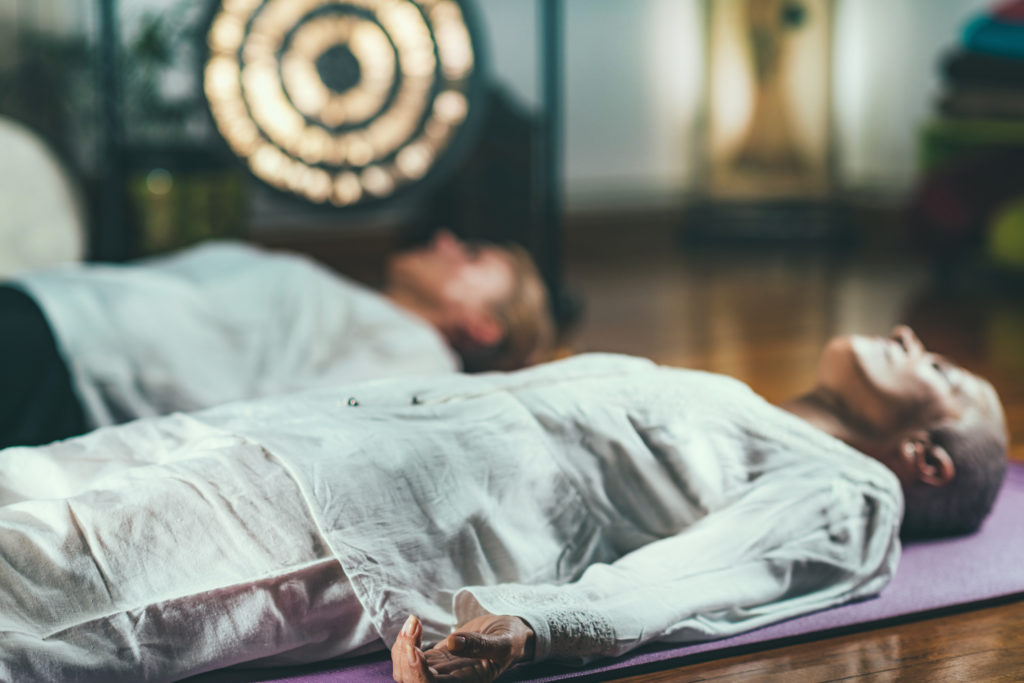Quick Hits
Daily brief research updates from the cognitive sciences

We do know that mindfulness can be effective in many areas (such as pain reduction here) but a direct comparison to other interventions is often missing. This study is therefore a first of its kind – and an important one.
In this Elizabeth Hoge and colleagues of Georgetown University Medical Center compared mindfulness training with a common anxiety drug in those with anxiety disorders.
Anxiety disorders include general anxiety, social anxiety, panic disorder, and fear of certain places or situations, amongst others. These can be debilitating to some people and those who suffer form these are at higher risk of suicide and disability and are commonly treated in psychiatric clinics. Hence finding other effective interventions would be highly beneficial to the individuals but potentially also reduce costs and reliance on medication with all its side effects.
In this study 276 patients were recruited, and they were then randomly assigned to either a Mindfulness Based Stress Reduction (MBSR) programme for eight weeks or to the commonly used anxiety drug escitalopram. The patients were then assessed at the end of the eight-week intervention and then post treatment at 12 and 24 weeks after enrolment.
Of note is that the post treatment assessments were blinded meaning that the assessor did not know if the patient had been in the MBSR or drug group.
What were the results?
The researchers used a validated assessment which ranks anxiety on a scale of 1-7 and participants from both groups saw a reduction (1.35 for MBSR and 1.43 for the drug which in this case are statistically similar). This translated into about a 30% reduction in anxiety symptoms – not bad.
The MBSR intervention included a 2 ½ hour in-person class once per week, 45-minute daily home practice exercises and a 1-day retreat during the 5th or 6th week.
This is very promising research showing that a mindfulness intervention is as effective as a drug-based treatment but without the risk of side-effects and the effects extended post treatment. There are some obvious caveats and one is the amount of time needed to invest in this – similar to exercise interventions, many people know they should do it but still fail to complete the activities they should.
Hoge has also continued this research and is currently looking into the effects of online guided mindfulness programmes – I’ll be intrigued to see the results of that too.
But for now, we can now say mindfulness is as effective as drugs – and without the negative side effects – and potentially some very positive long-term impacts on many aspects of life. Good to know!

Andy Habermacher
Andy is author of leading brains Review, Neuroleadership, and multiple other books. He has been intensively involved in writing and research into neuroleadership and is considered one of Europe’s leading experts. He is also a well-known public speaker, speaking on the brain and human behaviour.
Andy is also a masters athlete (middle distance running) and competes regularly at international competitions (and holds a few national records in his age category).
References
Elizabeth A. Hoge, Eric Bui, Mihriye Mete, Mary Ann Dutton, Amanda W. Baker, Naomi M. Simon.
Mindfulness-Based Stress Reduction vs Escitalopram for the Treatment of Adults With Anxiety Disorders.
JAMA Psychiatry, 2022
DOI: 10.1001/jamapsychiatry.2022.3679
More Quick Hits
Mind Over Matter – Regaining Movement
This is the type of study and insight I like. Kind of amazingly simple but effective
Do We Lose Brain or Muscles First?
As we age things start to decline, we all know that – happens to the best of us…
Cravings for Fatty Food and the Gut-Brain Connection
Research hot off the presses is showing something interesting happening with our desire for fatty food….
How to Form Optimal Groups for Learning
There has been a long-standing debate and discussion in learning contexts for what is the best way to form groups for optimal learning when there are different abilities in those groups…
Extreme Temperatures Increase Hate Speech Online
I am sure we all know that feeling of getting more irritable when temperatures rise – well we now have evidence that…
News Addiction is Bad for Your Mental (and Physical) Health
Many years ago I first heard the advice of “Don’t watch the news if you want to be happy”…






